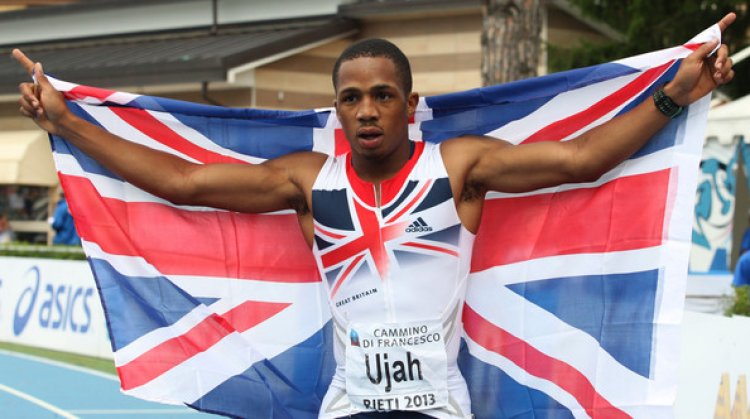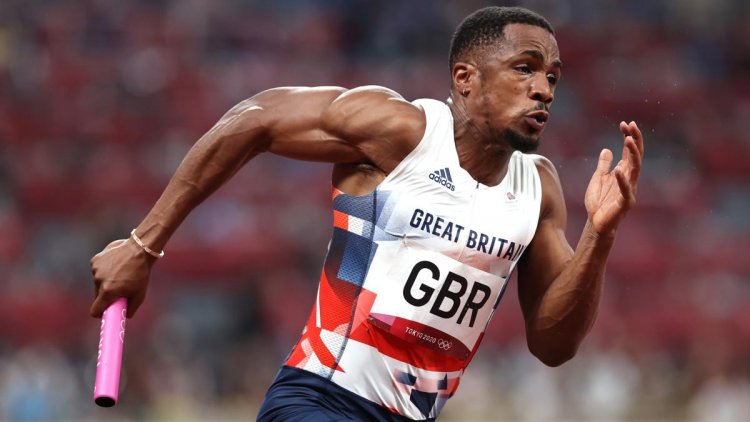Ujah gets soft landing, banned for only 22 months

Nigeria born British sprinter CJ Ujah has been suspended for 22 months but cleared of deliberately taking banned drugs after the British sprinter cost his team-mates their Olympic silver sprint relay medal.
Ujah, 28, led off the British men’s 4x100m quartet in Tokyo last year only to then test positive for two prohibited substances, ostarine and S-23.
He was facing up to a four-year ban but the Athletics Integrity Unit concluded that, while he had been reckless, his use of a contaminated supplement was not a deliberate act of cheating.
He is banned under Wada’s strict liability rules but can return to competition in June next year, with the ban backdated to August 2021. The 2023 world championships in Budapest begin on August 19.

A statement from the AIU said: “The AIU and Wada were satisfied that the sprinter’s anti-doping rule violation was not intentional as a result of his ingestion of a contaminated supplement and the applicable two-year period of ineligibility was reduced by two months on account of how promptly he admitted the violation.”
AIU chief Brett Clothier used Ujah’s case to warn athletes about the risks of using unchecked supplements.
“In this case, after a thorough examination of the facts, we were satisfied that Mr Ujah did indeed ingest a contaminated supplement, but he was unable to demonstrate that he was entitled to any reduction in the applicable period of ineligibility based on his level of fault,” said Clothier.
“Taking supplements is risky for athletes as they can be contaminated or even adulterated with prohibited substances. Athletes owe it to their fellow competitors to be 100 per cent certain before putting anything into their body. If there’s the slightest doubt, leave it out.”
Ujah, who told the Guardian he bought the amino acid supplement off Amazon for £10 during lockdown, said: “Obviously, I made a mistake. But people make mistakes. I am not a cheat.
“You know what? I wish I had been tested right before the Olympics, so that I never went. That way, I would never have put these other three guys, my teammates, through what they went through as well as myself.”
“The hardest moment was when I first saw my family. My mum was crying. My dad was very upset. And then I started crying too, because my mum was crying. Suddenly I had this stain against my name. It hurt so much and it still does.”
Richard Kilty, Ujah’s team-mate in the 4 x 100m team in Tokyo along with Zharnel Hughes and Nethaneel Mitchell-Blake, has said he would never forgive him for his actions. However, Hughes said in June that he has forgiven Ujah after receiving an apology.

UKAD chief executive, Jane Rumble said: “The announcement today from the Athletics Integrity Unit marks another sad chapter in this case, and for sport in the UK. Every National Governing Body, athlete, coach, and member of support staff should take this case as a warning that doping presents a threat to British sport at the highest levels. This case underlines the need for all sports to redouble their commitment to their anti-doping responsibilities.
“This case once again highlights the risks associated with supplement use. The importance of athletes taking all possible steps to reduce these risks can’t be understated. When we talk to athletes about supplements, we say: assess the need to use them, assess the risks, and assess the consequences. This case highlights most starkly those serious consequences.”
A UK Athletics statement read: “At UKA we are committed to a culture that supports the athletes individual and collective responsibility to clean sport. We therefore express our extreme disappointment, frustration and sadness that the actions of CJ Ujah resulted in the GB & NI team members forfeiting their hard-earned medals. The negligence of one individual to fulfil their commitment to clean athletics — one of the essential obligations of representing GB & NI — had a devastating impact upon the entire relay programme, but none more so than the other athletes who competed alongside Ujah in the Olympic final.”




















